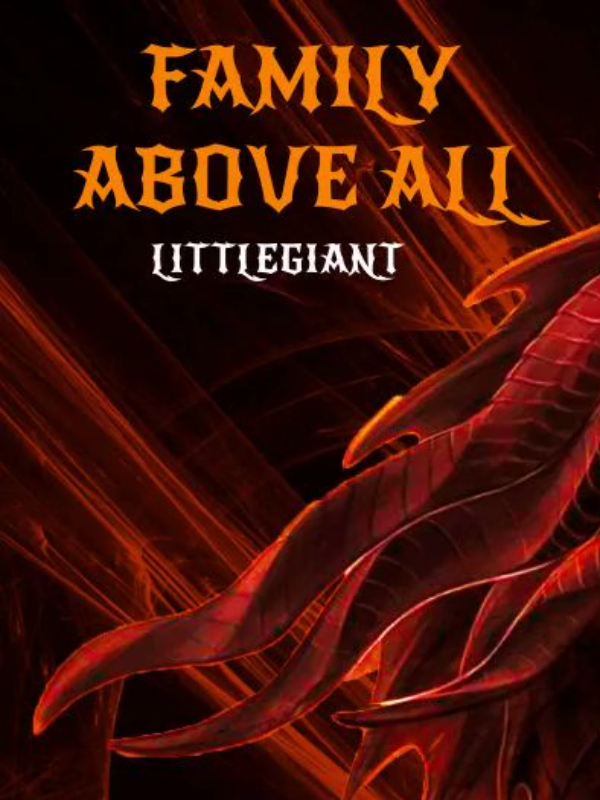.
The Dragonsbacks aren’t a single chain of mountains, but rather a wide band of ridges and valleys that rise in Hamagaar and its neighboring provinces to the west, in the Empire, and running southward for fourteen hundred miles until falling off around the southern border of Relador. To the east of them is Orestania, and to the west is the massive desert plateau known as the Demonic Wastes. The Great Wall is the highest of those ridges, an Everest-scale line of mountains that is effectively impassible, and separates the Dragonbacks region from the Demonic Wastes.
The region is home to dozens of tiny kingdoms, of much smaller scale than the bookends of Hamagaar and Relador. There are even a few as small as baronetcies in Orestania. But among the larger ones, one kingdom has a peculiar distinction.
Arelia’s western border is the Great Wall itself, and it is a nation of reasonably large scale, almost thirty thousand square miles in area. It stands out as the home of a certain major religious order. The capital city, Dausindiu, is the location of that order’s Temple of the Sun and Moons, which is the authority on all matters concerning measurement.
Back during the Imperial age, during a long period of peace, the great powers of Oste and Doria started doing business with each other and needed to standardize the months, the years, and the weights and measures. Rather than have one of the great nations yield authority to the other, they both designated a third party.
In the cultures of both empires, it was important to know exactly when the lunar quarters and the solstices and equinoxes happen, so naturally they chose the best astronomers, the astronomy-obsessed priests of that religious order.
I spotted that temple from the air as we descended toward the city. It had a massive dome at its center and basilica-style halls extending in the four cardinal directions. Tiana’s geography lessons had taught her that Ostish architects built this edifice two thousand years ago as a gift to the religious order from the Emperor. It was the biggest Imperial Age building still in use.
My tourist urge to ask Talene to fly closer and circle it for a better view was cut short by the wyvern riders that rose from the city to meet us.
The wind gourds had long since disappeared back into the hull, hidden once more behind doors, and the pairs of long skinny fish fins were once again rowing. They now slowed, allowing the wyverns to circle us.
The deck hatch opened and the quartet of Talene’s Toys came flying up from the hold, going into formation around the boat. Lady Serera flew ahead to parley, then came back with instructions from the now very nervous air cavalry to land outside the city walls.
Meanwhile, Manlon called a quick meeting on the deck and issued a strict order.
“I am Miröen Fairling, a traveling mage. I am escorting My Lady Tiana of Orestania. There are no princes or princesses on this boat.”
I replied, “You can call me Lady Tia, daughter of Baroness Mona if the need arises.”
He raised his eyebrow. “You have an alias already prepared?”
“All higher nobility in Orestania have at least one. Mona is the Duke of Pendor’s private estate, so my mother is by default its baron. I’m not allowed to use my alias when I’m traveling as a knight, but right now I’m just a noblewoman in your care.”
He nodded. “Very well, Lady Tia.”
Pasrue asked, “So don’t call her ‘Your Highness’? What do we say?”
“You call me ‘My Lady’,” I answered. “The same way I address Serera. Don’t worry, because that’s what I’m actually accustomed to.”
“We will be going into the city with you, Your… My Lady,” Manlon told me. “We need to meet with this Orestanian task force and understand the situation before I decide what we shall do from there. Father left the decision up to me, whether to accompany you or fly on to meet with your king.”
I nodded. “It’s appreciated either way, Your Hi… Mr. Fairling.”
“I am but a mere wandering mage, My Lady,” he said with a gracious incline of the head. “You may call me Miröen.”
No, you have a last name, I should use it... was the old Tiana reaction. Instead, I nodded and said, “Miröen.”
The meeting ended after a few minor matters were discussed, mostly involving the crew members who were staying behind on the launch.
When we landed in a wide field that was apparently a pasture for the cavalry, the wyverns were landing all around us, but they kept their distance, nervous of the ‘golems’ now standing guard around the craft.
One of the crew mages operated a magical tool attached to the railing of the ship and the gangway materialized so that we could descend to the ground.
The landing party had two fairies. Lady Serera was officially on her way to serve Owen as a fairy knight at Mother’s request, and Lady Dilorè, now decked out as a fairy knight, was officially her squire. Apparently, she really was one of Serera’s protégés, just like the lesser fairies in the border guard. They would accompany Manlon, his disciples and I into the city.
Ladies Serera and Dilorè disdained to use the gangway, simply hopping over the gunwale with their wings outstretched. I wanted to do the same, but I stayed with the mortals filing down the gangway, followed by Talene’s wooden golem pulling a wagon bearing our luggage. Unlike the ‘toys’, which stood nearly two paces tall, this thing was only one pace tall, or about five feet.
“I’m well-known around here as a visiting scholar mage,” Manlon told her as they walked away from the vessel, in the direction of the city gate. “Our story is, I wish to visit with the scholar priests at the Temple, and offered a ride to an Orestanian noblewoman who had her own private business to attend to, at the Academy. I hired the fairy knight and her squire for the safety of my vessel.”
As I nodded, he added with a smile, “I apologize in advance if anyone assumes you’re my lover.”
I suppressed the laugh that tried to escape me. He must have some history in this city.
“I’ll ignore it if it happens,” I answered.
Several local soldiers were approaching us from the city. They didn’t have weapons drawn, so I remained carefree on the outside. Thanks to recent experiences, though, I was actually pretty anxious. I recognized how tense I was and forced myself to relax.
Serera moved ahead of us, her hand on the hilt of her sword. The soldiers came to a halt, and we did the same once Serera was in easy speaking distance.
“We’re escorting these mortals into the city,” she declared, sounding quite imperious. “What is your purpose in coming out to meet us?”
I hadn’t heard the Ostish language in over a week. It was nice to have it back.
The leader of the group, a twentyish soldier equipped with a short sword and wearing a shield on his back, waved negation. “My Lady, do not misunderstand. You may continue to the gate as you desire. Our commander merely sent us to inspect the peculiar vessel behind you.”
“I am escorting that vessel, so it is also under my protection. Go back and inform your commander that I, Serera of the Gray Mountain, guarantee that the vessel is no threat to your city, and that I will not permit anyone to approach it.”
The soldier paled slightly, looking torn, then nodded. He told his men, “Let’s go back.”
They turned and double-timed back. Serera looked over her shoulder at Manlon. “That is what I also told the captain of the wyvern patrol. I suppose the message had not yet reached the city guard.”
The prerequisite line of travelers was short. They all had seen us land, and I suppose the two fairy knights in our group were somewhat intimidating, but we didn’t have to endure the wide-eyed stares for too long.
The soldiers at the gate of Dausindiu reminded me more of the guards of Tëan Tír than those of Cara Ita. They were friendly, with a relaxed, just-doing-my-job attitude. When Manlon stepped up to pay the entry tax for us, they simply counted heads, took names (omitting the two in fairy knight garb, I noticed) and waved us in. With that, my fear that Parna had somehow spread my appearance to every city gate vanished.
Of course, it had been only ten days since my escape from Copen. I had no idea exactly how long it would take to spread wanted posters out to other kingdoms, or even if he could. He had been able to send word to Relador so quickly because of the fairy clan allied to him. He wouldn’t have allies in every kingdom around.
Dausindiu was a far cleaner and far less crowded place than Cara Ita, but not as modern as Atius or Royses. It lacked the seaport character of Bray, but it had that same Elizabethan feel. It was probably a lot more sanitary than Elizabethan England though. The streets were cobblestone and I did not notice any open sewer smell.
Leaving the entrance, we proceded down a boulevard with foot traffic on the edges and animal-drawn carriages in the middle. I say animal-drawn, because I did not see a single horse anywhere. The beasts this town favored were mountain goats and large dog-like beasts called pack hounds. I know that sounds a little weird, but other than these, I only saw human-drawn rickshaws and handcarts.
This particular boulevard pointed toward a castle on a hill in the center of town. I knew from Tiana’s lessons that this city had three hills that formed important centers. On the south lay the Temple Hill, in the center, ahead of us, sat the Castle Hill and on the north lay the Academy Hill. Their king was thus flanked by the priest-scholars on the south side and the mage-scholars on the north. The town itself had naturally grown with each of these centers surrounded by their natural allies. The monasteries and the religious families on the south, the aristocratic townhouses in the middle and the neighborhoods of magic tradesmen and magic-using nonhumans in the north.
In the outer areas, surrounding all of them, the neighborhoods of the labor class, the military and the mercantile families completed the city.
This straight avenue that ran up Castle Hill at its end would intersect first with a boulevard headed toward Academy Hill once we reached the aristocratic neighborhood. But for now, we were still passing shops with trade goods and foods and the smells of the local cuisine floating out, trying to entice us into straying from our paths. One shop was sneakily pulling at my nose with a smell remarkably similar to Texas barbecue…
I was rescued from this temptation pretty rudely, when the clatter of horse-hooves rose up, and ahead of us, people and carts were scrambling to get out of the way for an approaching cavalry troop. The first horses I had seen in this city carried soldiers in jack armor bearing lances, with a mortal female knight in full armor riding her charger at their head. She had her eyes directly on us.










